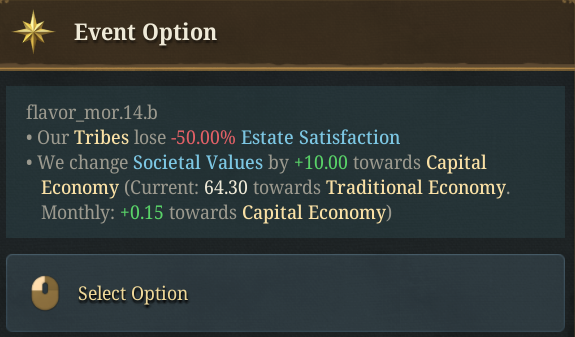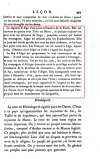Hello, and welcome one more week to Tinto Flavour, the happy Fridays where we take a look at the flavourish content of the super-secret Project Caesar!
Today we will take a look at the Sultanate of Morocco! So let’s start without further ado:

Please take the UI, 2D and 3D art as WIP, as usual.
Here are the lands of Morocco:

Morocco starts with a fairly interesting diplomatic situation:


Tafilalt is a vassal subject, ruled by Omar Abu ‘Ali, brother of the Sultan. Castile and Tlemcen and enemies and rivals, Tunis is an ally, and Morocco starts at war with Tlemcen.
Morocco has a few starting estate privileges, including these:

Waqf Payments is a privilege granted to the clergy, available to all Muslim countries.

This privilege will be granted to the Tribes if your country has its capital in the Maghreb region, making it much more powerful (which has its uses), but reducing your control.
The Parliament has a flavour name, as usual:

Morocco also has some starting works of art:




Unique advances in all the different ages:

This is an advance for Maghrebi countries.






And something a bit different compared to previous Tinto Flavour, unique buildings that are already unlocked at the start of the game:



Let’s move now to the narrative content. This event will trigger early on in the game:

And also:

Another early game event is:



And a bit later, after 1350:

Although there might also be some troubles:



… And much more content, including mid-game one regarding the golden age of the Saadi dynasty… But that’s all for today! Next week we will be taking a look at the content for one my favourite countries to playtest, Hungary! Cheers!
Today we will take a look at the Sultanate of Morocco! So let’s start without further ado:

Please take the UI, 2D and 3D art as WIP, as usual.
Here are the lands of Morocco:

You may notice some arrows in a sea zone, that indicates the oceanic currents and wind directions. These visuals were recently implemented, so take them as WIP.
Morocco starts with a fairly interesting diplomatic situation:


Tafilalt is a vassal subject, ruled by Omar Abu ‘Ali, brother of the Sultan. Castile and Tlemcen and enemies and rivals, Tunis is an ally, and Morocco starts at war with Tlemcen.
Morocco has a few starting estate privileges, including these:

Waqf Payments is a privilege granted to the clergy, available to all Muslim countries.

This privilege will be granted to the Tribes if your country has its capital in the Maghreb region, making it much more powerful (which has its uses), but reducing your control.
The Parliament has a flavour name, as usual:

Morocco also has some starting works of art:




Unique advances in all the different ages:

This is an advance for Maghrebi countries.






And something a bit different compared to previous Tinto Flavour, unique buildings that are already unlocked at the start of the game:



Let’s move now to the narrative content. This event will trigger early on in the game:


Another early game event is:



And a bit later, after 1350:

Although there might also be some troubles:



… And much more content, including mid-game one regarding the golden age of the Saadi dynasty… But that’s all for today! Next week we will be taking a look at the content for one my favourite countries to playtest, Hungary! Cheers!


















